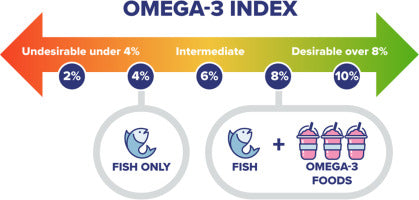Understanding AIWW Consultations: The Road to Cleaner Air
What is an AIWW Consultation?
An AIWW consultation is a professional service. It focuses on improving indoor air quality. Experts analyze your space during this process. They look at the airflow, pollutants, and sources of these issues. The aim is to create a healthier indoor environment. AIWW stands for Air, Irritation, Water, and Waste systems. Professionals guide in selecting the right equipment. They also advise on managing these systems. The consultation might include tests and inspections. It is the first step to breathing better air indoors.

Key Components of an AIWW Consultation
AIWW consultations are essential for improving indoor air quality. These consultations involve several key components. Among them are:
- Assessment of Air Quality Needs: Determining specific air quality issues and the requirements of the space.
- Evaluation of the Existing Systems: A thorough check of current ventilation, heating, and air conditioning systems.
- Recommendations for Improvement: Professional advice on upgrades or changes to enhance air quality.
- Plan for Implementation: A structured approach to incorporate recommended changes effectively.
Each component plays a vital role in ensuring your indoor environment is safe and comfortable.
The Importance of Professional Inspections
Professional inspections are a crucial step in the AIWW process. They ensure that indoor air systems work well. Experts can spot problems early on during checks. This can prevent small issues from getting big and costly. Trained inspectors can also give tips to keep air quality high. They might suggest better filters or adjustments to your system. In short, having an expert look at your AIWW system is smart. It can save you time and money in the long run, and keep your air clean.
Selecting the Right Air Purifier for Your Needs
Evaluating Different Types of Air Purifiers
When choosing an air purifier, consider the types available. Here's a list to start:
- HEPA Purifiers: They trap fine particles.
- Activated Carbon: Good for odors and gases.
- UV Purifiers: Use UV light to kill germs.
- Ionic Purifiers: Emit ions to clean air.
- Ozone Generators: Best avoided, can irritate lungs.
Match the type to your specific needs for best results.
Assessing the Effectiveness of Air Purifiers
When selecting an air purifier, it's crucial to assess its effectiveness. Look for Clean Air Delivery Rate (CADR) ratings. This shows how well it filters air pollutants. Consider the types of filters used. HEPA filters are known for trapping tiny particles. Also, check for certifications like Energy Star. They show energy efficiency. Remember the size of your area too. A purifier must match the room size for best results. Lastly, read user reviews. They can reveal real-world performance.
Integrating Smart Technology into Your AIWW Consultation
Smart technology can make AIWW consultations more useful. Modern air purifiers offer features that connect with smartphones and home automation systems. This lets you monitor your air quality and control settings remotely. Look for purifiers with app support for real-time updates. Choose devices that are compatible with other smart home gadgets. This makes it easy to create an integrated system for better air management. Remember, always opt for tech that meets your daily needs.
Best Practices for Maintenance and Operation
Routine Maintenance Checks for AIWW Consultations
Ensuring your AIWW system operates at peak efficiency involves regular maintenance checks. Here's a basic checklist:
- Filter Inspection: Check and replace filters every three to six months to avoid airflow blockage.
- Sensor Calibration: Test sensors periodically to ensure accurate readings of air quality.
- Ductwork Assessment: Examine ducts annually for any leaks or obstructions.
- System Software Updates: Keep your AIWW system's software up-to-date for optimal performance.
- Professional Evaluation: Schedule yearly check-ups with a certified technician to detect potential issues early.
Best Operational Strategies for Optimal Performance
To achieve the best from your AIWW system, certain strategies can help. Here's a brief guide:
- Set Regular Schedules: Keep air quality high by scheduling AIWW use. For example, run it during high-pollution times.
- Optimize Airflow: Make sure nothing blocks the vents. This keeps air moving well through your space.
- Adjust Settings: If your system has modes for different needs (like allergies), use them as needed.
- Use Timers: With a timer, your AIWW can work when you need it most, without wasting energy all day.
- Monitor Air Quality: Some systems can track pollutants. Watch these levels and adjust your AIWW use.
By following these easy steps, you'll keep your air clean and your system at peak performance.
Troubleshooting Common Issues with AIWW Systems
Dealing with AIWW system issues is key for good air quality. One common issue is clogged filters. They must be changed on time to stop airflow blockages. Another problem could be uneven air distribution. This might need recalibrating sensors or checking vents. When the system makes noise or vibration, it could signal a malfunction. We should check motor bearings and fan blades. If there's a sharp rise in energy costs, the system might be overworked. Thus, it's key to do regular check-ups and maintenance. By quickly tackling these issues, we can keep the AIWW system running well.




